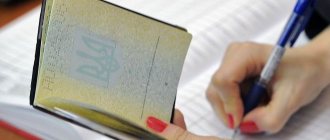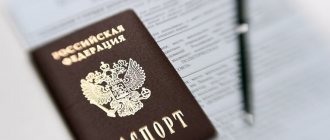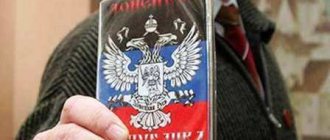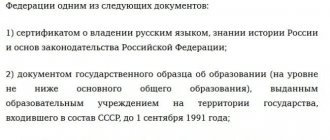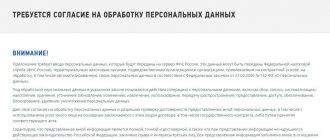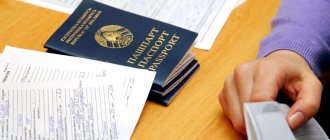What is a Russian language proficiency certificate?
A certificate is a document confirming that a foreign citizen speaks Russian. The certificate is valid for five years. Externally, it is sheet A 4 with blue or purple security stripes. Design differs from institution. There is no strictly established sample of a certificate of proficiency in the Russian language. However, any of them states:
- Document Number;
- Certificate level for language proficiency, for example, B1 or IR
- To whom and when was it issued;
- Which organization conducted the exam;
The accuracy of the data is certified by signature and seal.
What types of certificates for knowledge of the Russian language are there:
- IR
means that a foreigner with such knowledge has the right to work in Russia. - VR
- the applicant has the right to apply for a temporary residence permit. - Residence permit
- a person with this level can obtain a residence permit. - For admission to citizenship
.
A Russian language certificate for foreign citizens is issued after passing the exam; it is impossible to buy it legally without passing testing. Such actions will be considered a crime and the foreigner may face deportation from the country. Forgery of a certificate is assessed similarly. Obtaining it is not difficult, so there is no need to risk it.
What language levels are distinguished?
Any person who decides to learn a foreign language sooner or later wonders how well he speaks it. In all languages, levels are set for foreigners - from the simplest to the most complex. In Russian, for foreign citizens there are the following stages:
1. A1 (TEU: initial)
. A minimum level of knowledge of the Russian language, sufficient for a limited number of situations in everyday life. By and large, this is the level at which you can communicate with a waiter in a cafe or buy vegetables in a supermarket.
2. A2 (TBU: basic)
. It is enough to communicate in limited quantities. This is a minimum skill for any job, but to a limited extent. For example, with A2 you can understand that the client needs a green logo, but you cannot explain to the person how to reinstall the router. If a foreigner knows the language at TBU, he will easily receive a certificate of proficiency in Russian.
3. B1 (TORFL-I: first)
. Allows you to communicate relatively freely at home, in educational and professional spheres. You won’t be able to discuss metaphors and epithets in Pushkin’s works with such knowledge, but you can hear from your neighbor about the new film.
4. B2 (TORFL-II: second)
. This is the level for work in engineering, humanities and natural sciences. Strictly speaking, somewhere here the level of Russian-speaking speakers begins, who, of course, are not the most linguistically educated. A foreigner with B2 will easily pass the exam and receive a Russian language certificate for citizenship.
5. C1 (TORFL-III: third)
. With a certificate of this level you can work as a translator, journalist, etc.
6. C2 (TORFL-IV: fourth)
.
This level is comparable to the knowledge of highly educated native speakers. Such skills are necessary for scientific activity in the field of Russian literature. By and large, level B2 is enough for a foreigner, and to obtain a temporary residence permit or temporary residence permit, even less knowledge is required.
Where can I get a certificate for knowledge of the Russian language?
Although migration issues are handled by the Ministry of Internal Affairs, language skills tests are carried out by educational institutions.
However, it would be a mistake to assume that any private office can conduct exams and issue documents confirming their successful completion. Only certified organizations can conduct the exam – usually large universities.
A certificate of proficiency in Russian can only be obtained from them. Therefore, before using the services of a company, it is worth checking whether it has the right to accept exams for migrants. How to do it? See if the educational institution is on the list of the Ministry of Education and Science. At the same time, as a legal entity, an educational organization has the right to open branches. Therefore, it is possible that representatives of Moscow University will work somewhere in Kaliningrad and have the right to issue certificates.
The second option is to use the services of companies that provide assistance in obtaining a certificate for migrants. Specialists will choose a certified university and the foreigner will only have to appear for the exam.
If you go to a center that is not authorized to issue a certificate, you will pay for regular language courses. You may be given a certificate of completion of the course, but it will not mean anything to the Ministry of Internal Affairs.
The service for issuing a certificate of proficiency in Russian is paid; prices will depend on the region and educational institution. Usually 4-6 thousand. If the exam is not passed, the money is not returned; retaking the exam is paid separately. At the same time, if a person fails only one block, he may be given a discount when retaking it.
If suddenly the certificate for knowledge of the Russian language is lost, a duplicate can be obtained from the same institution that issued it.
List of documents for passing the exam
Before you go for testing, you should prepare all the necessary documents. Foreign citizens should provide the original and a copy of their passport with a notarized translation. If the document already has a stamp on the issuance of a temporary residence permit or temporary residence permit, then you should make a copy of this page. In addition, you need to provide a migration card and a receipt for payment of the fee to the bank.
You should register for the exam in advance, as groups are formed within 1-2 months. This can be done either online or in person by submitting an application to the testing center. As a rule, citizens are notified of the date of the comprehensive exam 5-7 days in advance. This allows you to prepare for upcoming issues and plan your schedule. Remember that in case of failure to appear for the exam, funds contributed to the state treasury will not be returned.
Who does not need to take the Russian language proficiency exam?
Obviously, if a foreigner came to Russia for tourism purposes, he will not be required to know the state language. Although, of course, such skills will make visiting the country more comfortable. However, for individual citizens the exam is not required, even if they are applying for a temporary residence permit or Russian citizenship. Who and in what situations does not need a certificate:
| Residence permit and temporary residence permit | Work permit | Citizenship | |
| A highly qualified specialist and his family members. This is considered a person to whom the employer pays from 85 to 167 thousand, depending on the field of work. Obviously, a person with such a salary can hardly be accused of dumping on the labor market and, obviously, the company will not give money to a person with whom it cannot communicate. | + residence permit and temporary residence permit | + Work permit | — Citizenship |
| Persons of retirement age, which is determined according to the laws of the Russian Federation, i.e. 65 years for men and 60 for women | + Residence permit and temporary residence permit | — Work permit | + Citizenship |
| Minors - children follow their parents and it will be strange not to let a child into the country if his parents have received the right to be in it | + Residence permit and temporary residence permit | — Work permit | + Citizenship |
| Incompetent | + Residence permit and temporary residence permit | — Work permit | + Citizenship |
| Russian speakers | + Residence permit and temporary residence permit | — Work permit | + Citizenship |
| Participants in the compatriots resettlement program | + Residence permit and temporary residence permit | + Work permit | + Citizenship |
| He received his education in the USSR until 1991. | + Residence permit and temporary residence permit | + Work permit | + Citizenship |
| Citizens of Belarus | + Residence permit and temporary residence permit | + Work permit | + Citizenship |
| Journalists working in media broadcasting in foreign languages | — Residence permit and temporary residence permit | + Work permit | — Citizenship |
| University or vocational school students studying full-time | — Residence permit and temporary residence permit | + Work permit | — Citizenship |
Algorithm for obtaining a certificate
The procedure must be carried out through organizations that have passed licensing and accreditation and are able to provide documentation confirming the legality of the activity. The list of institutions entitled to issue a Russian language testing certificate can be found on the website of the Ministry of Internal Affairs. In addition to private organizations, the service is provided by the Testing Center, the State University of Tyumen and St. Petersburg.
Basic principles for issuing a document:
- A citizen can receive a certificate of a native speaker of the Russian language only in personal presence during the examination test (fraudsters provide the opportunity not to appear for testing, but to pass it using Internet resources);
- To issue a document that corresponds to the state standard, you must wait until it is produced (the timing varies depending on the type of certificate and the specifics of the organization’s work).
When deciding whether to obtain a paper, you need to select the institution where the examination will take place, then prepare for the procedure.
Important! It is recommended to sign up for testing in advance: in most institutions, groups are formed over the course of 1–2 months, so you should clarify the exact date of the examination and the nuances of its implementation.
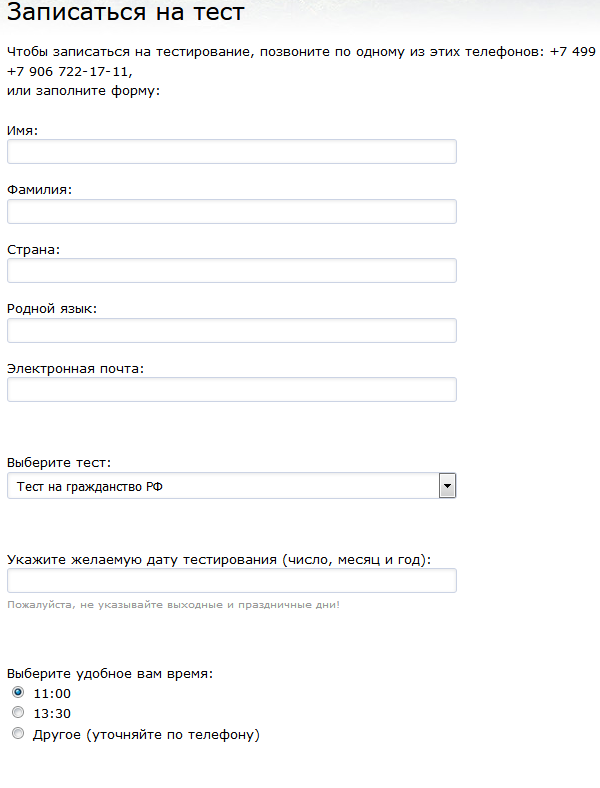
You must register in advance
You can study the materials either independently or by paying for the services of tutors, or by reading the information provided on the official website of the institution.
A foreign citizen has the right to use online courses or other sources of information. Depending on the organization, emigrants are given the opportunity to undergo trial testing and free consultations are provided.
Read also: Registration for residence permit
Before the examination, you must pay for the procedure, prepare a package of documents, find out the schedule and progress of the examination.
The establishment must enter into an agreement with the citizen applying for the certificate, which reflects the rights and obligations of each party.
On the day of testing, you need to show maximum knowledge in all disciplines and wait for the commission’s decision.
During the inspection, the use of Internet resources and cheat sheets is prohibited. If cheating is suspected, commission members have the right to ask a foreign citizen to leave the audience.
Important! If there is a suspicion of a biased assessment of the result or a deliberate decrease in the passing score, the citizen retains the right to appeal to the conflict commission. All examination materials are stored in accordance with the internal regulations, so there is the possibility of their revision.
If the testing attempt is unsuccessful, the foreign citizen is issued a certificate, the shelf life of which is 2 years. Using this document, an emigrant has the right to retake a discipline in which he did not achieve the minimum score.
How to get to the exam?
Each company establishes its own procedure for obtaining a certificate of Russian language proficiency. But in general, the passage algorithm is similar. When a foreign citizen has chosen a university or language center that has the right to issue certificates, he submits an application. Many institutions allow you to do this online. Then university staff contact the applicants and set an exam date. Some organizations wait until they have a large group. Others work with each individual individually.
Before the exam, it is possible to hold consultations where the person will be told how the testing will take place.
On the day of delivery you need to bring the following documents with you:
- Passport, translation certified by a notary, plus photocopies
- Migration card or temporary residence permit
- Registration
- Photos
The specific list will be communicated to the organization hosting the exam.
You need to take a pen with you, or better yet several, in case one runs out of ink, it starts to leak, etc. If you have vision problems, don't forget your glasses.
If a foreigner is not confident in his language skills, he can take a trial test online or look at sample test tasks. Based on the same companies, it is possible to take training courses to improve your knowledge.
Where to take the language exam for citizenship in Moscow
Foreign citizens are allowed to undergo testing only in specialized institutions that have received accreditation and their work has been approved by the relevant Ministry. There are many of these in Moscow; the full list can be downloaded from the link.
The main testing center is considered to be EVRAZ, an operating branch of Moscow State University. Lomonosov. Here you can take an exam for the preparation of any migration documents. Payment for the service is charged within the established state duty, while all other institutions act as an intermediary, so their work costs more. Contact details of the EVRAZ Testing Center:
| Name | Description |
| Full title: | EVRAZ testing center |
| Address: | Moscow, st. Kazakova, building 13, 2nd floor, 105005 |
| Nearest metro: | Art. Kurskaya metro station (700 meters) |
| Telephone: | +7 (only for registration for testing) (to obtain information about the readiness of the certificate and test results) |
| Schedule: | Tue – Fri. from 11:00 to 18:00$ Sat. from 11:00 to 17:00 Sun. - day off |
| Official site: | https://centrevraz.ru/ |
| Mail: | [email protected] |
What does the language skills exam include?
- Speaking is the ability to communicate with a native speaker. Conversation with the examiner on a given topic.
- Reading - understanding written text. A person is asked to read a short text and answer questions about it.
- Letter. This is where the rules of grammar and vocabulary that are so disliked by many are included.
- Listening is the ability to understand heard speech. So, the examinee listens to the text, then answers questions about the text.
Based on this, the exam is usually divided into 5 blocks:
- Testing, during which a person’s knowledge of grammar and vocabulary is tested;
- Reading a short text. It can also take the form of a test, where a foreigner needs to answer questions about what he has read or select sentences;
- Filling out a form to test writing skills;
- Listening to audio text and answering questions about the material heard.
- Communication with the examiner.
Depending on the type of educational institution, some blocks can be divided into several, for example, a separate text on vocabulary and grammar.
The assessment is carried out on a point scale, which again depends on the specific region and the rules of the institution where the exam is held. For example, in the Kaliningrad region the maximum score based on testing results is 300 points. Each block must have at least 60% correct answers, otherwise it is considered failed and the exam is not counted. A foreigner applying for a patent needs 60% (180 points), temporary residence permit – 70% (210), residence permit – 80% (240).
What is asked in the Russian language exam?
Examiners have the following requirements for foreigners who take tests to obtain a temporary residence permit and/or residence permit:
- The ability to read any text, regardless of its focus - an advertisement, a newspaper article, advertising, and so on. It is not enough to just read; you need to be able to correctly explain and retell what you read.
- Ability to write, fill out applications, and take part in business correspondence. A foreign citizen must understand how to construct a sentence in writing, and when completing a task, correctly inflect and conjugate words.
- The ability to identify by ear the main idea of a text as a whole and individual sentences, to distinguish between a monologue and a dialogue. In the test, you will need to mark various possible answers to the questions posed.
- Knowledge of oral speech, when sentences and the entire text are constructed coherently and sequentially. The examinee needs to compose a sentence from the available words, conduct a conversation with the examiner, answer questions freely, quickly and correctly pronouncing the words.
Additionally, you will need to know the basics of state and law, which implies knowledge of:
- main events, historical facts of the Russian Federation;
- religious traditions of Russian society;
- names and merits of outstanding figures of the Russian Federation;
- fundamentals of constitutional law;
- rules of entry and stay in Russia for migrants;
- government agencies that will need to be contacted in various situations (loss of documents, theft of things, and so on);
- legal liability of a foreign citizen.
If you take the citizenship exam, the requirements are slightly different for each module.
The Russian language test for foreign citizens consists of the following parts:
- Listening (45 minutes). The candidate is able to understand basic information (topic, expression of place, time, reason) presented in individual audio recordings. The subject of audio recordings is relevant for social, everyday and socio-cultural spheres of communication. The test is carried out in the form of a written task.
- Vocabulary and grammar (45 minutes to complete). The candidate must have knowledge of vocabulary and grammar of the Russian language and be able to apply this knowledge in practice. The subtest contains sentences that must first be read; each sentence has a gap (missing key information) that must be filled in with the correct answer, in your opinion, which is also presented next door. The correct answer is transferred to the working matrix (check sheet). The test is carried out in the form of a written task.
- Reading (45 minutes). The candidate is able to read and highlight basic information from short simple texts taken from various authentic sources (announcements, advertisements, signs, inscriptions, signs, etc.). Texts of an informational, journalistic and social-everyday nature are also used. For each text there are questions (tasks) with different answer options, from which you need to choose one option that is correct, in your opinion, and mark it in the working matrix. The test is carried out in the form of a written task.
- Letter (45 minutes). The candidate is able to present the main content of the source text, based on questions: write a congratulation, fill out a questionnaire and a job application. The subject matter of the source text is relevant for the socio-cultural and social spheres of communication. The test is carried out in the form of a written task.
- Speaking (oral speech) (30 minutes). The candidate is able to participate in dialogic communication: respond adequately to remarks in a limited range of situations of everyday everyday communication (talking about himself, work, learning a foreign language, my work day, free time, health, etc.), initiate dialogue and express his communicative intention in simple situations of the standard type. The candidate is able to maintain a conversation within a limited range of topics, convey information about himself, his interests, etc., as well as construct his own statement based on the text he has read. The test is carried out in the form of oral communication with the examiner.
In each of the subtasks, the candidate for the certificate must be able to correctly talk about himself, fill in the missing words in the text, read and write in compliance with the norms of the Russian language.
Examples of standard tests for knowledge of the Russian language can be found here.
You can also follow the link for citizenship tests and practice at home. The document contains examples of tasks, but from them you can understand what exactly is required of a foreign citizen to obtain citizenship.
How is the language proficiency test conducted?
Strictly speaking, testing confirming Russian language proficiency is no different from the regular exam that each of us took at school or university.
First, the examiner briefly talks about the tasks and answers questions. Then testing begins. Includes written and oral parts. Of course, you cannot talk, use dictionaries, much less cheat sheets or telephones. Violation of this rule will result in removal; money for the exam on knowledge of the Russian language will not be returned.
Each educational institution independently determines the duration of the exam. For example, some universities provide 10-15 minutes of rest after each block. In any case, you should be prepared for the fact that the testing and interview takes 2-3 hours.
Knowledge of vocabulary and grammar is tested in the form of a test, including tasks like:
We'll go to the cinema together...
A) with a friend
B) at a friend's
In friends list
The reading test works like this: a person is given a text, then he must answer questions from the text.
For example: “The bakery sells bread, pastries and cakes. The store is open from 9 a.m. to 9 p.m., no lunches or weekends.” What does the bakery sell? What time does it open, are there weekends?
Oral speech is tested by asking the subject to answer several questions such as: “Where are you from”, “What is your hobby?” There may also be a task in which you need to describe what is happening in the picture.
I passed the exam, when will they tell me the results and give me a certificate?
Test results are usually announced on the day of testing. But it takes several days to prepare a document confirming that a foreign citizen has successfully demonstrated his language skills. Many companies make it possible to check the readiness of a certificate for knowledge of the Russian language on their website.
The exam itself is not very difficult and does not require any deep knowledge. However, organizational issues can cause difficulties. To obtain a certificate of knowledge of the Russian language, without excessive costs and without bureaucratic delays, you should contact a company that provides assistance in passing the exam.
How is testing carried out?
To pass the Russian language test, a migrant must do the following:
- choose the institution where the test will be taken and receive a certificate;
- submit an application with a package of documents and pay the state fee;
- Appear for the exam on the appointed date with a copy of the payment receipt and passport.
Several people are invited to take the test and a group is assembled. Foreign citizens are in the office, the examiner is working with them, their cell phones are turned off or they are handed over to the examiner present. First, all exam participants take the written modules, then the proctor checks them, and only when the required number of points is reached, the test continues.
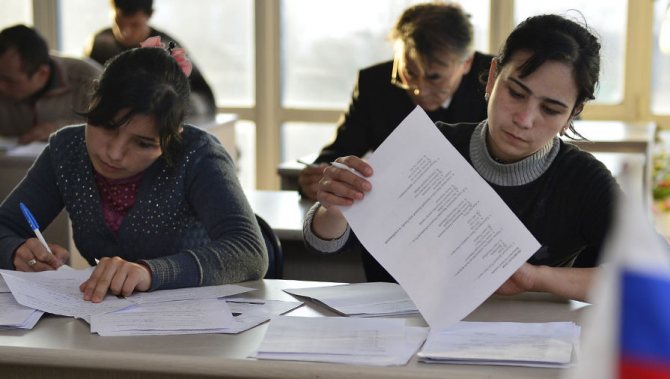
If the exam is taken to obtain certificates for temporary residence permits and temporary residence permits, then foreign citizens completely complete the written tasks and only then proceed to oral testing.
Foreign citizens receive the first information about passing or “failing” the exam immediately after finishing the test - the examiner checks the work and immediately reports the results.
